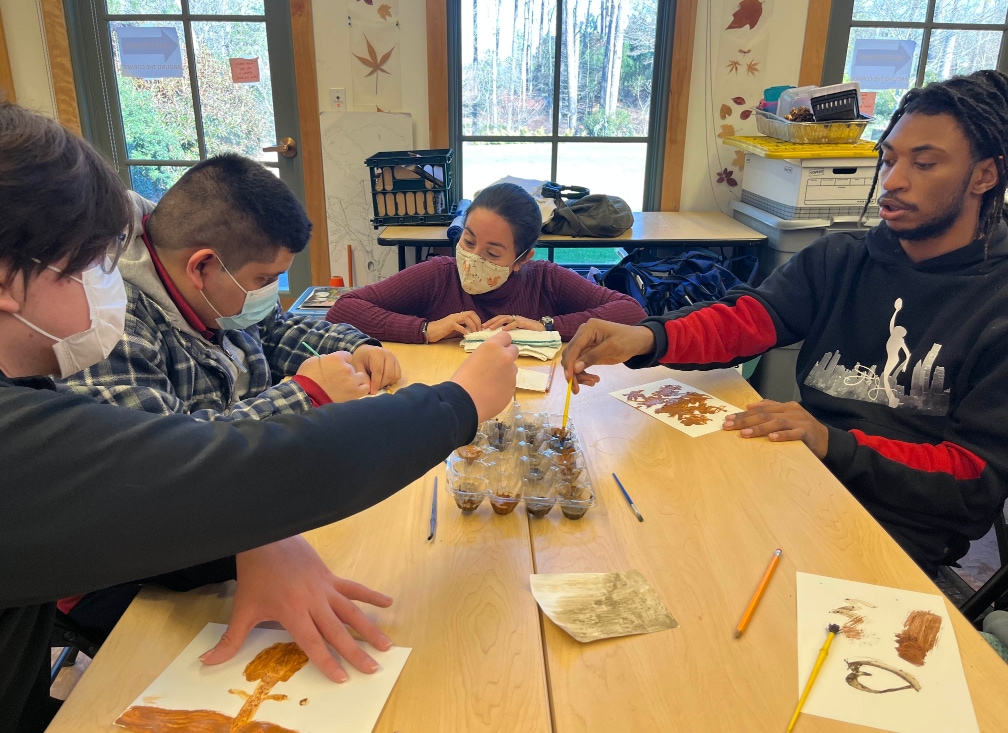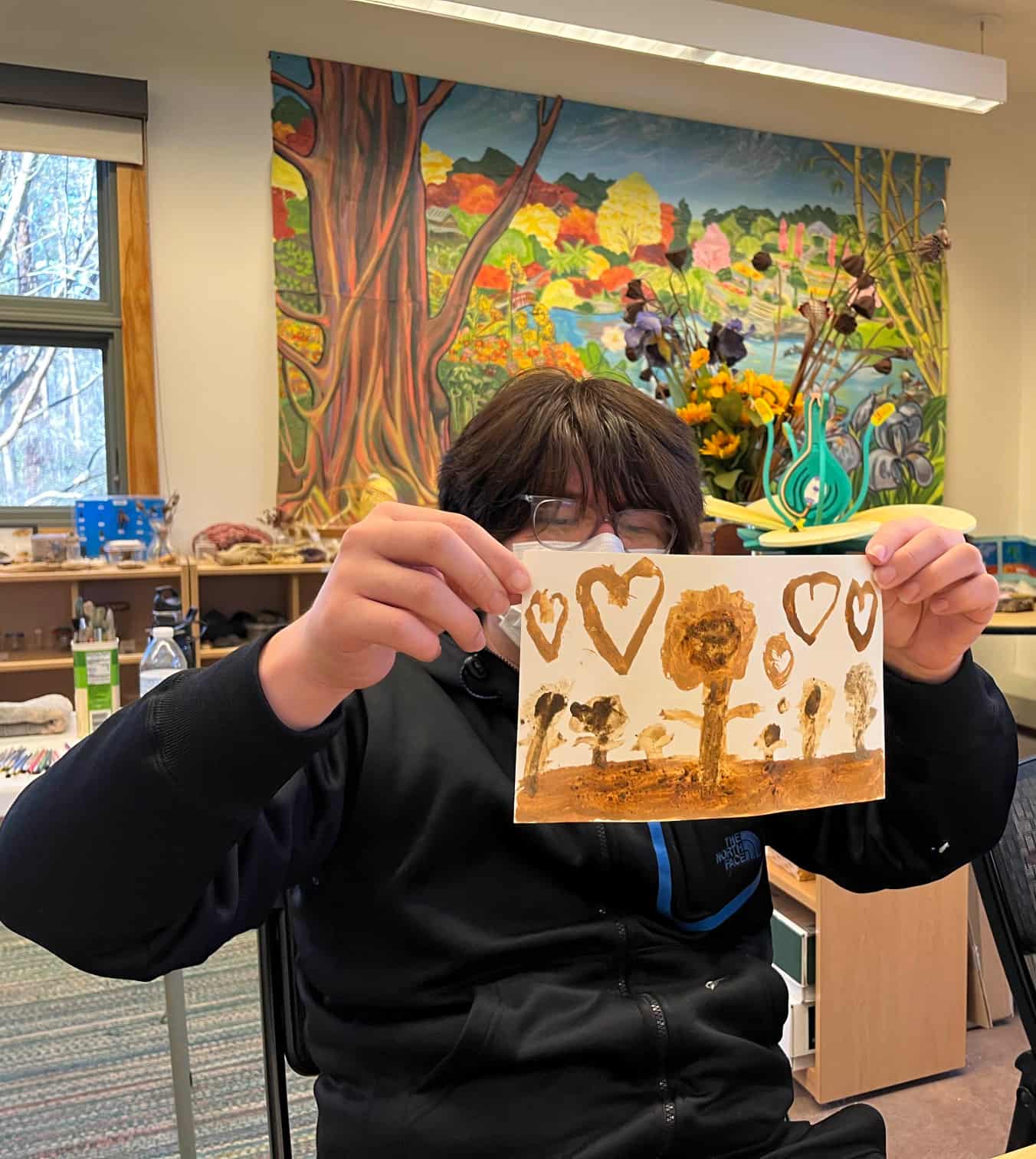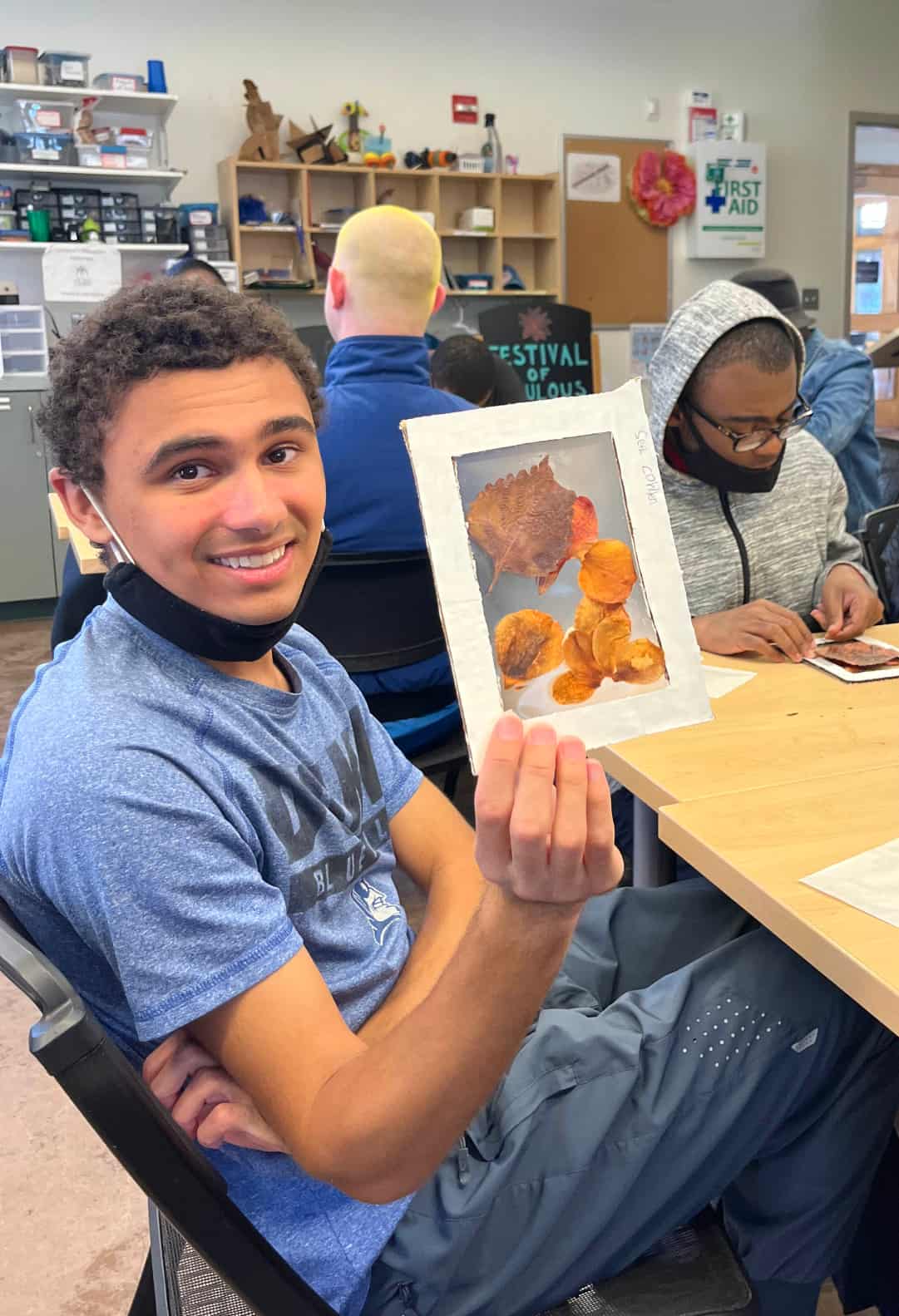Leveraging Nature to Create Art and Belonging
by Liani Yirka
Each year, Duke Gardens welcomes thousands of school-aged students on field trips that extend their academic lessons beyond the walls of their classroom. While we support students and teachers by providing educational programs that are aligned to science, math, language arts and social studies curriculums, a significant part of the learning that we offer is less tangible, untested by most academic metrics and difficult to accurately capture.
Social-emotional learning is a byproduct of all our field trip programs. Students are able to reinforce positive relationships with peers, the natural world and its abiotic factors help facilitate emotional regulation, and all learners are given many opportunities to make responsible
decisions during their field trips. Studies show the positive impacts of spending time in nature on physical and mental health, and our field trip participants receive these benefits by learning in nature while they are in Duke Gardens.


While social, emotional, physical and academic benefits to learning in a natural space apply to any and all students, youngsters with disabilities are not often able to fully participate in traditional outdoor or environmental education programs. The students often face barriers in
transportation, physical access to natural spaces, educational content that is inaccessible to their cognitive or physical needs, sensitivities to stimuli that can be challenging when outdoors, or medical conditions that limit an individual’s ability to comfortably gather in outdoor settings. By partnering with Durham School of the Arts’ occupational course of studies high school classes, we aim to create a learning opportunity that allows students with disabilities to feel a sense of belonging in nature.
Durham School of the Arts (DSA) is located less than 3 miles from Duke Gardens, and many of its students live close to the Gardens. DSA is one of two Durham public schools that began bringing their occupational course of studies students to the Gardens weekly to collect litter, spend time in nature and practice skills the students are working on in their classroom.
In fall 2022, DSA teacher Greg Lewis partnered with us to facilitate a monthly art and nature project for these students. After a trial project at the end of 2022—making nature collages—the Gardens’ staff created a calendar of five projects for spring 2023, connecting students’ visits to
the Gardens with art activities that help them practice and hone fine motor skills, listening and comprehension, and following serialized directions.
Students made nature stained-glass-style windows, paintings made with soil, nature journal pages, and bandanas dyed using plants. The culminating project at the end of the spring semester had students collaboratively paint two murals that depict different areas of Duke Gardens. Students were able to take home their individual projects, and the mural paintings are displayed in the Gardens’ classroom for students to visit with their families and friends. Each month’s project was planned to use different fine motor skills such as cutting, painting, drawing, picking up small objects, using tape, pens, pencils and paint brushes, and following increasingly complex instructions. Overall, the projects were intended to leverage the positive impacts of art and nature, and to facilitate a sense of belonging for these students within Duke Gardens, the DSA community and the natural world.



Witnessing the positive response from both DSA students and the staff that joined their students in their monthly visits, Duke Gardens continued this project in the current school year. Beginning in October, students began visiting the Gardens weekly, and once a month they spend two hours making art that connects to their experiences in the Gardens, reflecting seasonal changes, incorporating activities that celebrate identity, and using natural objects and art supplies.
The intangible benefits are visible in photos and videos. We see the smiles on the students’ faces as they show off the art they create, the increased comfort with instructors from outside their classroom, and the students’ growing familiarity with the surroundings of Duke Gardens. Nature and art together are ensuring that these students know they belong as part of the Duke Gardens community.
